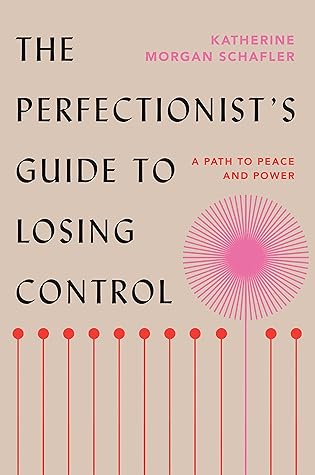More on this book
Community
Kindle Notes & Highlights
Read between
July 21 - July 28, 2024
Perfectionism makes an excellent servant and a terrible master;
What they want to know is who they are outside of what they accomplish.
Perfectionism does not have to be a struggle. You do not have to stop being a perfectionist to be healthy.
no one can hide their suffering better than the highly functioning person.
Managing perfectionism by telling perfectionists to stop being perfectionists is like managing anger by telling people to “calm down.”
Perfectionists never stop noticing the gulf between reality and the ideal, and they never stop longing to actively bridge the gap.
Something considered perfect is that which is completely done; it exists in a state of completion, wholeness, perfection.
done is better than perfect.
Perfectionists are bored by hedonism. Perfectionists love working. Perfectionists love a challenge. Perfectionists want to contribute, create, and grow.
You don’t heal by changing who you are; you heal by learning how to be yourself in the world.
The more tasks you’re able to successfully balance, the more bandwidth you create to, drumroll . . . balance more tasks.
Balance is not a primer for being who you are.
For perfectionists, the risk of being underwhelmed is much scarier than the risk of being overwhelmed.
Reconciling the backseat fighting between your limits and your potential is the underlying challenge of perfectionism.
You don’t achieve liberation through control; you achieve liberation through acceptance.
Compulsivity in OCD can also reflect rigid rules applied for no logical reason:
Perfectionists may also engage in rigid behaviors, but the rigidity holds a connection to reality and logic:
maladaptive perfectionists feel so inadequate already that they feel like they better at least offer something.
When you’re disconnected from your self-worth, you think your ability to feel joy is won through goal attainment.
Control is myopic—you have to plan everything one precise move at a time. Power is visionary—it affords you the great luxury of taking leaps of faith. Power is the upgrade.
Your identity is replaced by your output—what you do and how well and fast you do it becomes who you are.
When that primal attachment isn’t secure, being anything less than whatever their perfect version of you is can feel imminently dangerous. Walking-into-traffic dangerous.
They better perform perfectly because any holes in their story will reveal their deception.
This is why dichotomous thinking is dangerous, because the speed and false logic behind an otherwise mild experience of displeasure can so easily spiral into existential turmoil over the entire point of your literal life.
Perfectionists are the Olympians of punishment. Perfectionists have perfected punishment. Perfectionists go to law school.
Punishment is lazy.
positive emotions produce optimal functioning.
we are all in enough pain already. We don’t need to invent more pain for ourselves through self-punishment.
Guilt says, I’m sorry about what I did. Shame says, I’m sorry about who I am.
Recovery of any kind runs in direct proportion to how much we are willing to abandon self-punishment.
research has demonstrated that it’s not perfectionistic strivings that are harmful to our mental health, it’s the self-criticism we lacerate ourselves with that endangers our well-being.[13]
Your problem was never that you’re a perfectionist, and your problem is no longer that you punish yourself. Your problem is that you’re not being your full self.
Change is not something you have to force; change is a natural by-product of healing.
You also have to let go of the outcome of your striving.
Goal setting isn’t problematic. The problem arises when you hook your joy onto a future outcome:
If you’re waiting on the future to feel joy, you will never feel joy.
You can’t control the outcome of your striving, but you do have the power to choose how you ascribe meaning to failure.
Trying hard at something is a wonderful reason to celebrate, not that you need a reason.
You can’t control grief by subtracting joy from your life. You can’t control grief, period.
self-compassion is the primary solution.
Self-compassion is honest. Self-compassion brings real relief.
Instead of focusing on your mistake as the primary issue, acknowledge your pain as the primary issue.
If you don’t choose to treat yourself with kindness, what are you choosing instead?
The second thing clients come to acknowledge is that their desire was never to be perfect; it was only to be loved. To simply be seen, accepted, and embraced without conditions is what the child, who is now an adult, has been obsessed with—not perfection.
Grief is always the admission charge for major transition. You have to let go of the parts of you that you’ve outgrown, hence, the emptiness.
At all times, self-compassion will be worth whatever difficulty or ease you encounter.


